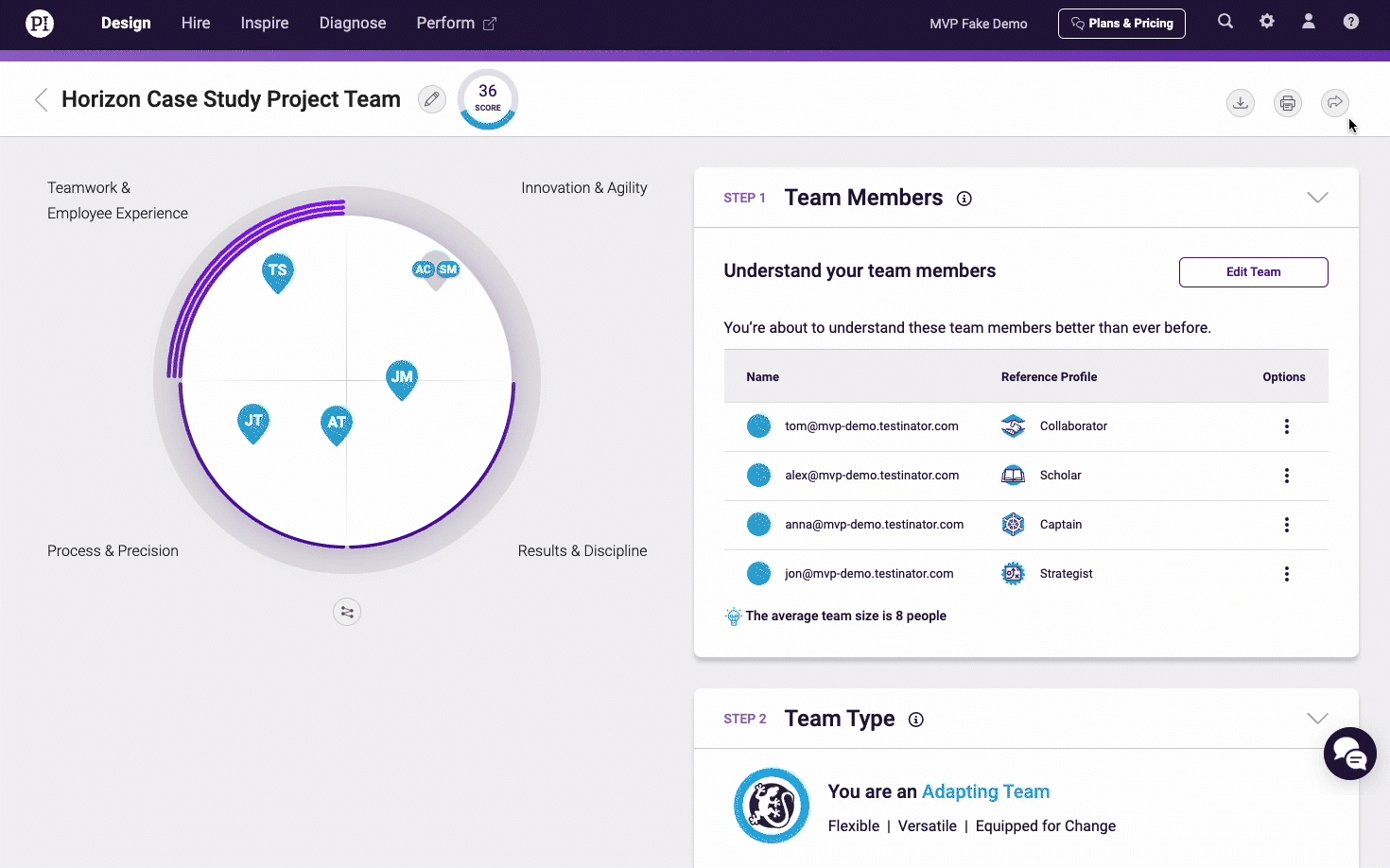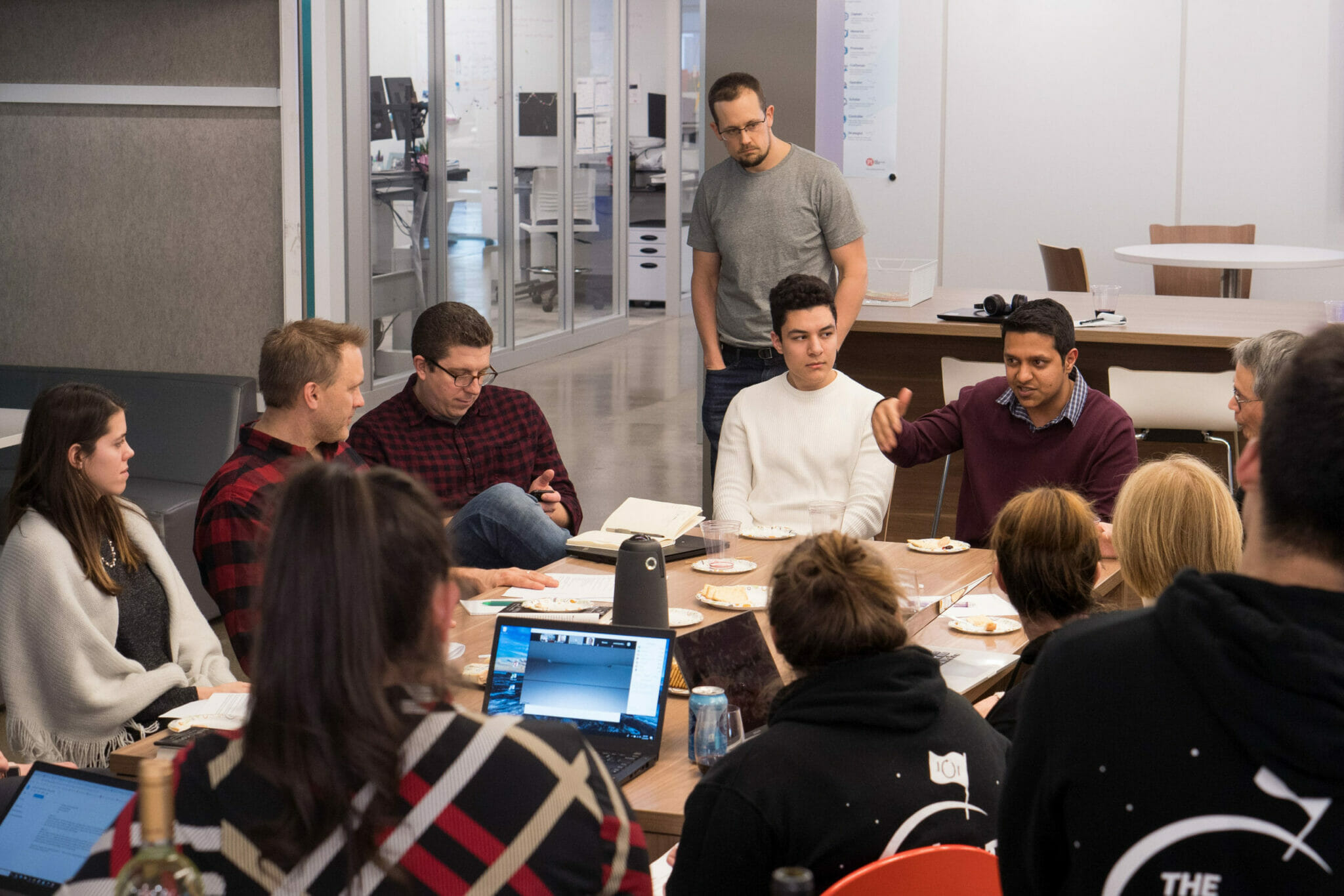As a bit of a business geek, I read a lot of books about management, business trends, and company culture. And there’s a term that I’ve noticed slip into our people management vernacular over the past 3-4 years: “Bringing your whole self to work.” It’s kind of catchy.
It sounds good. After all, bringing a third of yourself to work would be a bummer and a logistical nightmare. Probably painful too.
But as good as it sounds, I wasn’t entirely sure what it meant. So I went on a quest recently to see if I could nail down a common definition for the expression.
Join 10,000 companies solving the most complex people problems with PI.
Hire the right people, inspire their best work, design dream teams, and sustain engagement for the long haul.
The definition of bringing your authentic self to work
While I couldn’t find universal agreement on the term, I was able to construct two definitions that captured most people’s meaning of the term:
Definition #1: Being comfortable enough at work to share your personal life, interests, and flaws with coworkers… kind of like John Legend’s song, “All of Me.”
Definition #2: Bringing your “A-Game” with to the job every single day… kind of like something you might hear a football coach say before a big game: “Alright folks, leave it all out there on the field today!”
Here are some of the specific things people have to say about bring your whole self to work…
Definition #1
“Bringing your whole self to work is one of those concepts that’s hard to define precisely, but you develop a feel for it when you start to open up to it. This often means modeling the behavior yourself by showing some vulnerability to the people who report to you—or just admitting when you’re having a bad day—and creating a safe space for others to do the same.”
Kim Scott
Author of Radical Candor
“When you enter a place or workplace, you bring a lot of ‘you’ with you. Some elements are real and some are designed to serve a situation. Coming with wholeness in its most natural state—or with no suppressed behaviors—is bringing your whole self to work. This wholeness includes your mental, physical and spiritual being and nothing needs to be dropped off outside the workplace to be yourself.”
Sahil Sharma
Professional learning leader
Toronto District School Board
“Maybe we should think of it as, ‘bringing your authentic self to work.’ That can be challenging, and it’s something I’ve struggled with in the past.
“We deal so often with shoulds and should nots that we often forget to allow our authentic selves to shine through. Each “should” [and “should not”] is a brick in a wall we build around our authentic selves; and, if we’re not careful, we can become completely enclosed.
“Finding your authentic self and bringing it to work is a different journey for everyone. I feel fortunate to have my employer (The Predictive Index) chip away at my own brick wall so that it’s easier for me to put my authentic self forward. In my former work life, I hid my needs away, because I cared so much more about what I thought others expected of me. Now, there’s no hiding. My placard is out there! I can more easily be my authentic self and flex when the situation calls for it.
“I still lay bricks here and there, but it’s nice to finally no longer feel that I’ve shut myself out.”
Allie LeBlanc-Domain
Talent acquisition specialist
The Predictive Index
“I think the quote attributed to Peter Drucker: ‘One cannot hire a hand; the whole man always comes with it’ is very appropriate in this discussion.
“A person is the product of the environment at home and at work, the relationships we have inside and outside of work, our experiences that led us to this current reality, our passions, beliefs and values….and more.
“Historically, I think we were expected to leave a lot of ourselves at the door when we arrived at work. I recall a manager telling me to ‘not let my face hang out,’ meaning I should not let my frustrations from home affect my performance at work. But they did and they do! Perhaps we should rather have chatted about this than tried to suppress it.
“The whole person brings valuable alternative perspectives to problem solving, better and more questions, and a better understanding of what our clients might think. Once we allow the ‘whole person’ into the office, we develop a better understanding of how to engage that person in our quest for client satisfaction.”
Anthony Walley
COO
The CONFIDANT Group
Definition #2
“I think it represents being entirely present and not leaving a part of you at home that is focused on the kids, the broken fridge, the bills, etc. It’s being completely engaged in work, while at work.“
Jennifer Tenfelde
Director, HR
Polysciences, Inc.
“To me, bringing your whole self to work means giving it your all. Bringing everything to the table. You can’t be afraid to hold anything back. Don’t let the fear of the unknown or rejection make you leave something behind.”
SC Campbell
HR manager
Battleground Restaurants
“What it means to me is that you bring your skills and experience but more importantly also your mind and particularly your heart to work with you i.e. that you go ‘all-in’ and give it the very best you are able to give resulting in a great work performance whilst all the while being fully motivated and engaged.”
Jan Scheck
Partner
Humanostics
“It means to forget the outside influences and remain focused on your work responsibilities.”
Corey Luke
Parts manager
Ken Garff Automotive Group
The marriage of definition #1 and definition #2
Pam Vandenbussche, EVP of human resources at TPC Training Systems, took the prize for most eloquently summarizing the confluence of these to ways of thinking about bring your whole self to work:
“I would like it to mean both things: you are ready and focused on adding value to your organization as well as your organization allowing you to bring your authentic self to work. A true trusting environment learns to work with all types of diversity and being authentic at work allows you to be creative, productive, and focused.
Being authentic allows you to have the positive mental and social processes working well in order to feel like you want to be creative, productive, and add value. When you are authentic, you like being around people and you are more connect to your company, thus allowing you to focus and be productive.”
For an interesting TED talk on bringing your whole self to work, Mike Robbins spoke about it eloquently at TEDxBerkeley. Here it is:








